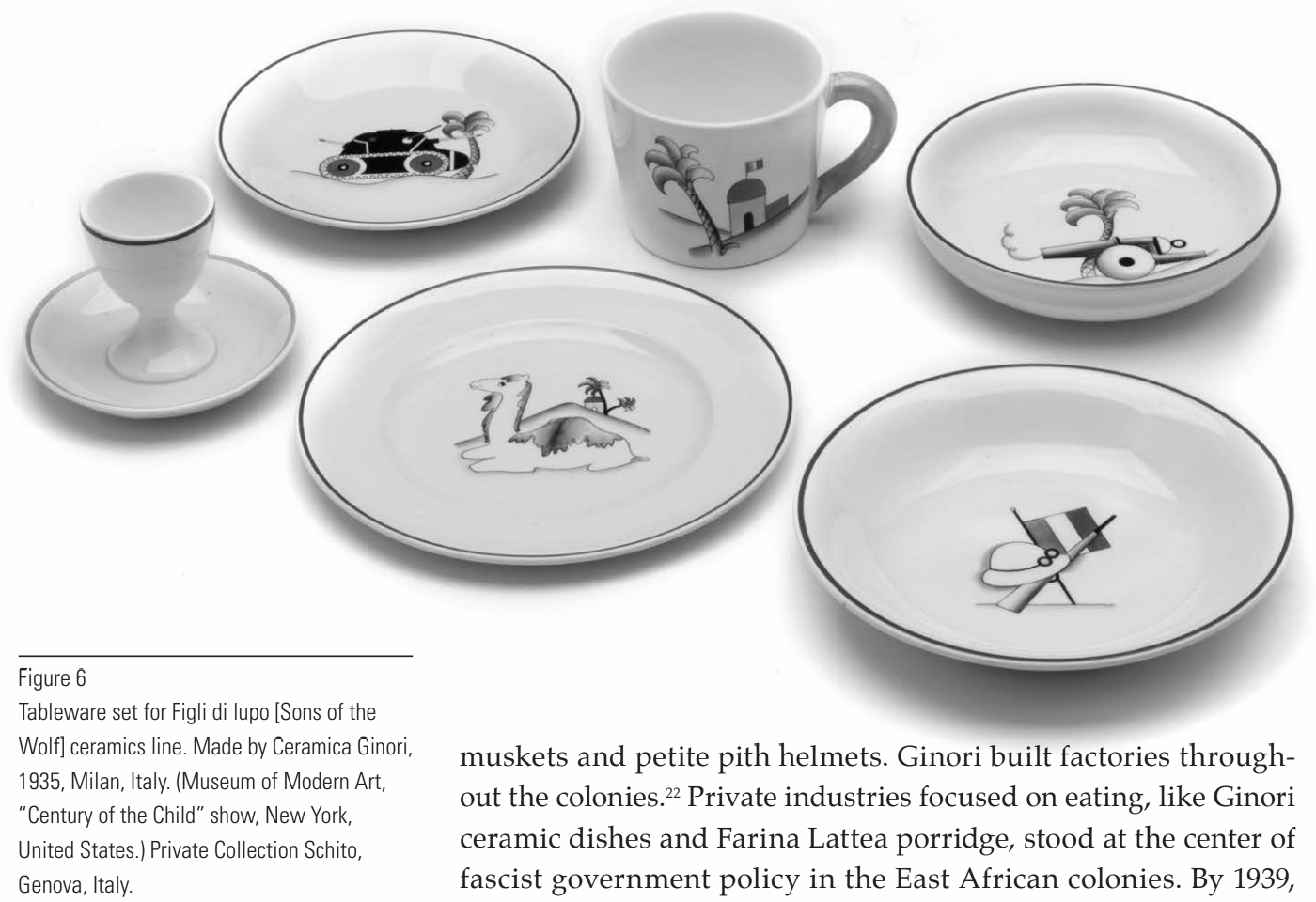Although futurist artists first pioneered the idea that Italian toys ought to “accustom the child to… physical courage, struggle, and WAR,” the Italian toy industry under fascism adapted these ideas to the new political moment. They made use of régime projects in their product designs, miniaturizing the world of fascist adults to create attractive commercial items. As a result, private companies often designed more effective propaganda for fascism than the régime.
Playing with fascism:
The Conquest of Abyssinia, Farina Lattea Erba’s imperial board game, invited children to walk in the footsteps of fascist foot soldiers and the Italian industrial titans who came before them. Illustrations of steam ships, palm trees, and [Fascist] military progress were printed in bright color lithograph on heavy cardboard stock by Officina Istituto Italiano d’Arte Grafica Bergamo.
This tabletop amusement for children represented a significant advertising investment on the part of Carlo Erba S.A., the Milanese food company. Measuring two feet by one foot, it would have dominated the table as children played the game at breakfast (presumably consisting of the cream of wheat hawked by the company). Carlo Erba S.A. provided this toy in omaggio, the gift that came with a number of porridge box purchases.
[…]
Italian children could even eat their morning cream of what out of a 1935 line of colonial dishware from ceramics maker Ginora, called “Figli di Lupa”. These tiny cups and plates showed camels, palm trees, and huts alongside the cannons, tanks, and guns used to take them. Key to the construction of children’s racism, this reduction in scale conveys an empire that you can hold in the palm of your hand. Advertising and illustration reduced the actual violence to miniaturized play.
(Emphasis added in all cases.)
I am including a screenshot in this excerpt because you really have to see these to believe them:

Concerning playthings under German Fascism, see Nazi toys expected to raise thousands at Thornaby auction. (One particularly infamous board game was Juden Raus!, but apparently it was a critical and commercial failure, unlike the Adolf Schicklgruber sticker album.)
Hollywood, Hasbro, comic book publishers and video game companies pretending not to understand what that means